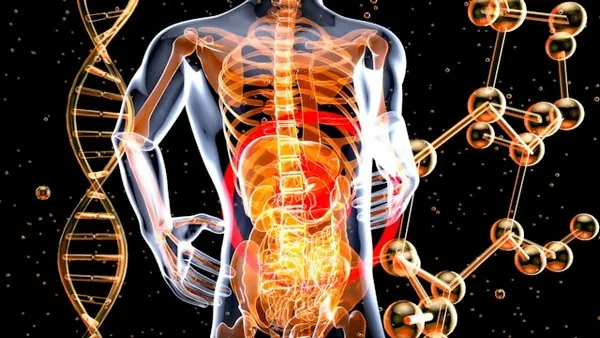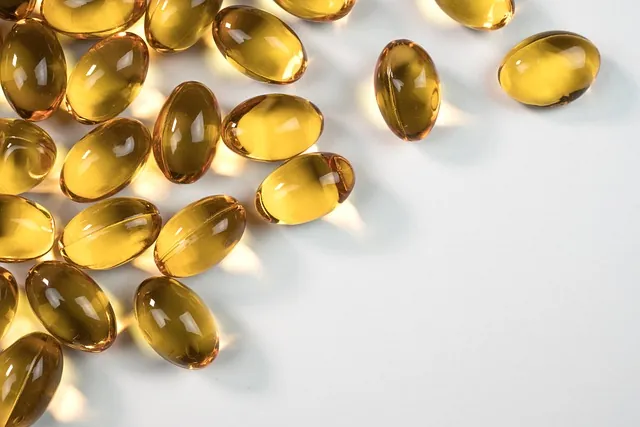Key Takeaways
- Lifestyle’s Impact: Key lifestyle changes—exercise, a diet rich in animal products, enough sleep, and mind-body practices like yoga—crucially support mental health.
- Nature’s Healing: Connecting with nature, through activities like forest bathing, can significantly boost mental wellness, underlining nature’s role in fighting depression.
- New Research Directions: The link between mitochondrial energy, iron metabolism, and depression opens new paths for holistic and more effective mental health treatments.
- Beyond Brain Chemistry: Depression involves more than neurotransmitters; factors like mitochondrial function and iron metabolism also play key roles, suggesting a need for broader treatment strategies.
Table of Contents
Dealing with depression can feel like a never-ending tunnel. Natural remedies can make the journey easier and bring healing. Quick fixes may not always be the best solution.
Exploring natural remedies can improve mental well-being. It offers alternatives to traditional treatments. Natural remedies can be a beacon of hope in navigating depression.
While much research has focused on neurotransmitter imbalances and brain chemistry, emerging evidence suggests that mitochondrial energy production and iron metabolism may also play significant roles in the development and progression of these disorders.
Fundermental Perspective
Mitochondrial Energy Production:
Mitochondria are often referred to as the powerhouse of the cell, responsible for producing adenosine triphosphate (ATP), the energy currency of the cell, through oxidative phosphorylation.
Dysfunction in mitochondrial energy production can lead to decreased ATP levels, impaired cellular function, and increased oxidative stress, all of which may contribute to the pathophysiology of depression and anxiety.
- Oxidative Stress: Think of mitochondria as tiny power plants inside our cells. Sometimes they don’t work right and create too much of a toxic substance, kind of like pollution. This can mess up important parts of the cell and is linked to feeling down or anxious because it can damage the cell’s machinery and mess with the signals inside.
- Neuroinflammation: When these power plants are faulty, they can also cause a sort of ‘alarm’ in the brain that leads to swelling or inflammation. This long-term swelling is not good for the brain and has been connected to feeling depressed or anxious. It’s like having a constant silent alarm that affects brain chemicals and the growth of brain connections.
- Neuroplasticity: Mitochondria help brain cells connect and communicate, which is essential for learning and memory. If they’re not working properly, it can make it harder for brain cells to make these connections, which might play a role in depression and anxiety. Imagine it as if the brain’s network can’t upgrade or repair itself efficiently.
Take care of your mitochondria and they will keep you healthy, physically and mentally.
Iron Metabolism:

Iron is an essential micronutrient involved in various physiological processes, including oxygen transport, energy production, and neurotransmitter synthesis:
- Heme Synthesis: Iron is like a building block for a vital molecule that carries oxygen in our blood and helps our cells breathe. If our body doesn’t make this molecule right, it’s like not getting enough oxygen everywhere, making us feel low or anxious.
- Neurotransmitter Synthesis: Iron is also important for making brain chemicals that affect our mood. If we don’t have the right amount of iron, these chemicals can get out of balance, and we might feel more down or worried than usual.
- Oxidative Stress: Iron can accidentally start a chemical reaction that creates harmful particles, which can damage our cells. Too much iron in the brain can lead to this kind of damage, linked to feeling down or anxious.
- Neuroinflammation: Too much iron can cause the brain to become inflamed like it’s always on high alert. This inflammation can mess with the way our brain cells talk to each other and grow new connections, and it’s related to depression and anxiety.
With that in mind your next thought is probably that you may need more iron or iron supplements. You would be wrong.
Iron is abundant in modern diets everywhere and you are likely to be full of iron. More often than not, the issue is that iron is not located where it needs to be in the body.
The correct approach begins with optimising copper levels. The metabolism of iron in the body is hinged on copper enzymes.
Ensuring copper is available in the correct form is the foundation on which all other interventions should be based.
“copper is an essential trace element in the brain, and serves as an important cofactor for numerous enzymes“
Chen, J., Song, W., & Zhang, W. (2023). The emerging role of copper in depression. Frontiers in Neuroscience, 17. https://doi.org/10.3389/fnins.2023.1230404
Lifestyle Changes to Improve Mental Health
Lifestyle adjustments offer a solid foundation for combating the symptoms of depression. These changes, rooted in daily habits and routines, can significantly influence the course of mental health for the better.
Regular Exercise
Exercise is a natural antidepressant. Engaging in regular physical activity triggers a surge of endorphins, the body’s feel-good chemicals, leading to improved mood and energy levels.
It doesn’t require exhausting workouts to reap the benefits; even moderate activities like brisk walking, cycling, or yoga can make a substantial difference. Consistency is key.
Aiming for about 30 minutes of exercise on most days of the week has been shown to alleviate symptoms of depression and anxiety significantly.
This simple yet powerful habit can also boost self-esteem and resilience against stress.
Healthy Diet, High Animal Fat and Animal Protein
Diet plays a crucial role in managing depression, with certain foods having the power to boost brain health and emotional well-being. A diet rich in animal fats and proteins supplies the raw materials for building vital compounds.
Red meat, poultry and seafood meats, eggs, and dairy products are excellent sources of high-quality protein, providing the essential amino acids your brain needs to regulate mood and cognition.
They supply nutrients like tyrosine, and its precursor phenylalanine, used to make dopamine and norepinephrine. Such neurotransmitters have specific regulatory conditions that can alter your mental state.
Foods high in omega-3 fatty acids, such as salmon and other fatty fish, are known to support brain function and protect against depression.
Sufficient Sleep

Aim for 7-9 hours of restful sleep per night to allow your brain and body the time they need to heal and rejuvenate. Creating a calming pre-sleep routine can help signal to your body that it’s time to wind down.
This might include practices such as dimming the lights, disconnecting from electronic devices an hour before bed, and engaging in relaxation techniques like deep breathing or meditation.
A conducive sleep environment, free from noise and distractions, further supports a restorative night’s sleep.
Mind-Body Practices for Mental Well-being
The interconnection between the mind and body plays a crucial role in mental and emotional health. Harnessing this connection through various mind-body practices can offer significant relief from depression. Let’s dive into some of these beneficial practices.
Meditation
The art of meditation is all about focusing the mind and achieving a mentally clear and emotionally calm state. Integrating meditation into your daily routine can significantly impact your mental well-being.
It helps reduce stress levels, enhances emotional health, and increases self-awareness.
For starters, dedicating just a few minutes each day to meditation can make a big difference. You can explore different types of meditation, such as mindfulness meditation, which focuses on being intensely aware of what you’re sensing and feeling in the moment without interpretation or judgment.
The beauty of meditation lies in its simplicity and flexibility, allowing you to practice it anytime, anywhere.
Yoga

Yoga is a centuries-old practice that combines physical postures, breathing exercises, and meditation to promote physical and mental well-being. It’s not just about flexibility and strength; it also helps in reducing anxiety, improving mood, and fostering a sense of peace.
The various yoga poses encourage mindfulness and concentration, diverting your attention from daily worries to the present moment.
Yoga’s breathing techniques also play a crucial role in controlling the nervous system and alleviating stress. Whether you join a class or practice at home, incorporating yoga into your life can be a powerful tool in battling depression.
Tai Chi
Originating from ancient China, Tai Chi is a form of exercise that involves slow, smooth body movements to relax the mind and body. Often described as “meditation in motion,” Tai Chi promotes serenity through gentle, flowing movements.
Practicing Tai Chi can help reduce stress, improve mood, and increase overall feelings of well-being. Its focus on breath control and movement also aids in developing mindfulness and reducing symptoms of depression.
With its adaptable pace, Tai Chi is suitable for people of all ages and fitness levels.
Connecting with Nature for Mental Wellness

Nature has an intrinsic ability to heal and rejuvenate. Spending time in natural surroundings can have profound effects on mental health, helping to reduce feelings of stress and depression. Here are a couple of ways to connect with nature and bolster your mental wellness.
Forest Bathing
Forest bathing, or Shinrin-yoku, is a Japanese practice that translates to taking in the forest atmosphere. This doesn’t involve actual bathing but simply means being in nature and connecting with it through our senses.
The idea is to slow down and become immersed in the natural environment, absorbing its sights, smells, and sounds.
Research has shown that spending time in forests can lower cortisol levels, pulse rate, and blood pressure, promoting a state of physiological relaxation.
Moreover, forest bathing has been linked to improved mood and reduced anxiety. It’s a simple, accessible activity that requires no special equipment – just a willingness to let nature do its healing work.
Gardening
Gardening is another wonderful way to engage with nature and improve your mental health. The act of planting, weeding, and nurturing plants is not only therapeutic but also provides a sense of accomplishment and connection to the Earth.
Studies have indicated that gardening can lower stress levels, improve mood, and even decrease symptoms of depression and anxiety.
It’s an activity that encourages mindfulness and present-moment awareness, as you focus on the tasks at hand and observe the changes in your garden over time.
Whether you have a small container garden on a balcony or a sprawling backyard garden, getting your hands in the soil can be a grounding and joy-inspiring experience.

Benefits of Natural Remedies for Depression
Depression is a complex and multifaceted condition, but for many, natural remedies provide a beacon of hope. These remedies, hailing from the bosom of nature, offer healing without the often daunting side effects of conventional medicine.
They work in harmony with the body’s intrinsic healing mechanisms, fostering mental well-being holistically and gently. Below, we explore some of the most effective natural treatments for depression.
Supplemental Interventions
The connection between nutrition and mental health is undeniable, paving the way for supplements as a form of natural remedy for depression. Omega-3 fatty acids, found abundantly in Cod Liver Oil, have been tied to improved brain function and a lower risk of depression.
Similarly, a deficiency in Vitamin D has been linked to depression, making Cod Liver Oil a potential pathway to better mental health.
Aromatherapy

Aromatherapy oils, when inhaled, can stimulate areas of the limbic system, a part of the brain that plays a role in emotions, behaviors, and long-term memory.
For those wrestling with depression, oils such as lavender, bergamot, and sandalwood can be particularly beneficial. They’re known to reduce stress, ease anxiety, and elevate mood, serving as natural allies in the battle against depression.
Incorporating aromatherapy into daily routines can be as simple as adding a few drops of essential oil into a diffuser or dabbing a bit on your wrist for a subtle, throughout-the-day mood boost.
Herbal Remedies
Herbal remedies have been used for centuries to combat the shadows of depression, emphasizing the body’s inherent capacity for self-healing. St. John’s Wort, for example, stands out for its antidepressant properties.
Studies have shown that it can be effective for mild to moderate depression, comparable to standard antidepressants with fewer side effects.
Equally promising is Saffron, known not only for its culinary uses but also for its potential in improving mood and treating depressive symptoms. Lavender, too, is often lauded for its calming properties which can alleviate anxiety and stress, often companions of depression.
These herbs offer a natural path towards balancing one’s mood, though they should be used under the guidance of a healthcare professional, especially if you’re already on medication for depression.

Combined with a healthy diet, these supplements can fortify the body’s defenses against depression:
| Copper | One of the most critical minerals for overall health. An irreplaceable component of important enzymes and pivotal cog in the iron regulation system. Dysregulation of iron metabolism has been implicated in the pathogenesis of depression and anxiety through several mechanisms |
| Magnesium | An essential mineral involved in over 300 biochemical reactions in the body, magnesium plays a role in mood regulation and may help reduce symptoms of depression and anxiety. |
| Cod Liver Oil | Omega-3 fatty acids are essential nutrients that play a crucial role in brain function and may help reduce symptoms of depression and anxiety vitamin D plays a crucial role in mood regulation and may help alleviate symptoms of depression, especially in individuals with vitamin D deficiency. |
| Nutritional Yeast | B vitamins play essential roles in brain function and mood regulation. B vitamin deficiencies have been linked to an increased risk of depression. |
| St. John’s Wort | A herbal supplement commonly used to alleviate symptoms of mild to moderate depression. It is believed to work by affecting neurotransmitters in the brain, such as serotonin, dopamine, and norepinephrine. |
| Zinc | An essential mineral involved in numerous physiological processes, including neurotransmitter function and immune system regulation. Zinc deficiency has been associated with an increased risk of depression. |
Conclusion
Depression can be a challenging journey, but you’re not alone. Exploring natural remedies provides a holistic approach to managing mental health that can work in unison with other treatments or serve as an alternative pathway for those seeking a more natural route. From the calming sway of meditation and the uplifting effects of exercise to the nutritional support of a balanced diet and the grounding essence of essential oils, each step towards natural wellness is a step towards finding your balance and reclaiming your joy.
Remember, it’s important to consult with a healthcare professional before making significant changes to your treatment plan. Embracing these natural remedies should be seen as a supplement to professional advice, not a replacement.
Every step you take is a testament to your resilience and commitment to your mental well-being. Here’s to a brighter, lighter future ahead!
Research Narang R. L., Gupta K. R., Narang A. P., Singh R. (1991). Levels of copper and zinc in depression. Indian J. Physiol. Pharmacol. 35, 272–274. PMID: https://pubmed.ncbi.nlm.nih.gov/1812105 Tarleton, E.K., Littenberg, B., MacLean, C.D., Kennedy, A.G. and Daley, C., 2017. Role of magnesium supplementation in the treatment of depression: A randomized clinical trial. PloS one, 12(6), p.e0180067. https://pubmed.ncbi.nlm.nih.gov/28654669/ Ressler, K. J., & Nemeroff, C. B. (1999). Role of norepinephrine in the pathophysiology and treatment of mood disorders. Biological Psychiatry, 46(9), 1219-1233. https://pubmed.ncbi.nlm.nih.gov/10560027/ An Y., Li S., Huang X., Chen X., Shan H., Zhang M. (2022). The role of copper homeostasis in brain disease. Int. J. Mol. Sci. 23:13850. doi: 10.3390/ijms232213850, PMID: https://www.ncbi.nlm.nih.gov/pmc/articles/PMC9698384/ Alvarez-Mon, M. A., Ortega, M. A., García-Montero, C., Fraile-Martinez, O., Monserrat, J., Lahera, G., Mora, F., Rodriguez-Quiroga, A., Fernandez-Rojo, S., Quintero, J., & Alvarez-Mon, M. (2021). Exploring the Role of Nutraceuticals in Major Depressive Disorder (MDD): Rationale, State of the Art and Future Prospects. Pharmaceuticals, 14(8). https://doi.org/10.3390/ph14080821 Raeder, M. B., Steen, V. M., Vollset, S. E., & Bjelland, I. (2007). Associations between cod liver oil use and symptoms of depression: The Hordaland Health Study. Journal of Affective Disorders, 101(1-3), 245-249. https://doi.org/10.1016/j.jad.2006.11.006 Sileshi Demelash Sasie, Aschalew Abayneh, Berhanu Wodajo et al. Impact of cod liver oil consumption in infants and children: A systematic review, 21 October 2022, PREPRINT (Version 1) available at Research Square [https://doi.org/10.21203/rs.3.rs-2139509/v1] Mikkelsen, K., Hallam, K., Stojanovska, L., & Apostolopoulos, V. (2018). Yeast based spreads improve anxiety and stress. Journal of Functional Foods, 40, 471-476. https://doi.org/10.1016/j.jff.2017.11.034 Gaster B, Holroyd J. St John's Wort for Depression: A Systematic Review. Arch Intern Med. 2000;160(2):152–156. doi:10.1001/archinte.160.2.152 Linde K, Berner MM, Kriston L. St John's wort for major depression. Cochrane Database of Systematic Reviews 2008, Issue 4. Art. No.: CD000448. DOI: 10.1002/14651858.CD000448.pub3. Accessed 21 March 2024. Linde K, Ramirez G, Mulrow C D, Pauls A, Weidenhammer W, Melchart D et al. St John's wort for depression—an overview and meta-analysis of randomised clinical trials BMJ 1996; 313 :253 doi:10.1136/bmj.313.7052.253 Szewczyk, B., Szopa, A., Serefko, A., Poleszak, E. and Nowak, G., 2018. The role of magnesium and zinc in depression: similarities and differences. Magnesium research, 31(3). Maes, M., D'haese, P.C., Scharpé, S., D'Hondt, P., Cosyns, P. and De Broe, M.E., 1994. Hypozincemia in depression. Journal of affective disorders, 31(2), pp.135-140.



















